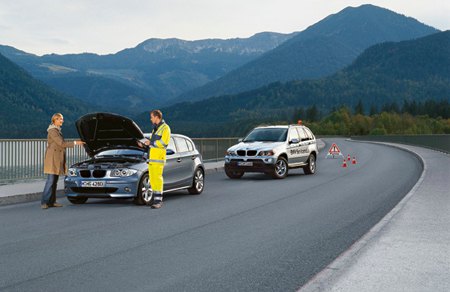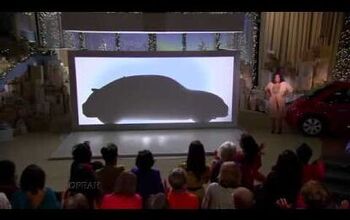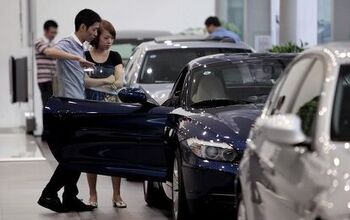Germans Rate German Cars More Reliable Than Japanese

Well, they would, wouldn't they? In what Spiegel Online calls a "remarkable change of trends," ADAC (the German equivalent of the AAA) says their car-breakdown stats (2m call-outs per year) indicate that VW, BMW and Mercedes are no longer guaranteed to fail. For the past 10 years, Japanese brands have led the ADAC reliability index. In 2003, nine out of ten of the most reliable cars in Germany were Japanese. But in the 2008 rankings, no Toyota made the top ten of least-likely-to-break-down. ADAC attributes the Japanese automaker's fall from grace to their rapid growth. Meanwhile, ADAC says that German carmakers' attention to "quality as reliability" (as opposed to "quality as tight panel gaps") accounts for their "win." Here's the company's rundown of Germany's most reliable machines…
1 – BMW X3

More by Martin Schwoerer

































Comments
Join the conversation
One thing to take into account, at least, is that BMW has developed a more and more efficient roadside assistance service for their customers (at least in Germany). I believe this is at least one of the explanations and goes to show that the Media, when citing statistics, need to become more and more prudent and discerning whilst carrying out additional research before blaring out the conclusions from the authors of the statistics in their headlines...
A real CSI index: How long did the average new car customer KEEP their car. You would have to take out all the lease, repo and fleet vehicles from the list but it certainly could be done. A real durability index: How many of the cars (percentage wise) are still registered after 15 years. Everything else is just pure speculation...
Steven Lang: You have a point / points. But with all due respect: even your approaches would include a lot of noise. Average ownership duration depends very much on incentives and technical progress. If I can get a new car for the same monthly payment as for my present one, and it consumes less fuel, then I'd buy it -- even if the present one is just fine. Durability: people keep cars that are durable -- but only if they are inexpensive to repair and service. There are few 20-year old S-class Mercedes on the road over here, but plenty 20-year old VW Golfs. This does not mean the Golfs are more durable -- they are only more economical keepers. And: to base a decision on what car to buy on 15-year-old data sure sounds speculative to my ears. In the end, we all have to work with incomplete information. We used flawed data, look at anecdotal evidence and rely on trust in a brand when we buy a car. Another data set that is popular over here in Germany is the 100k / 200k km test. Magazines drive certain models like hell for 12 months. The results, in most cases: Japanese cars are magnificent, French and Italian miserable. And German ones used to be seriously flawed with plenty electronic glitches and minor-but-expensive mechanical failures. But they seem to be improving rapidly. Auto, Motor & Sport just took a Mercedes A-Class to 100k without any unscheduled repair, for example. Let's wait and see.
Maybe they put in "Service Due" indicators that require dealer diagnostic equipment to reset. I'm very interested in finding out how the A4 made it onto the list.